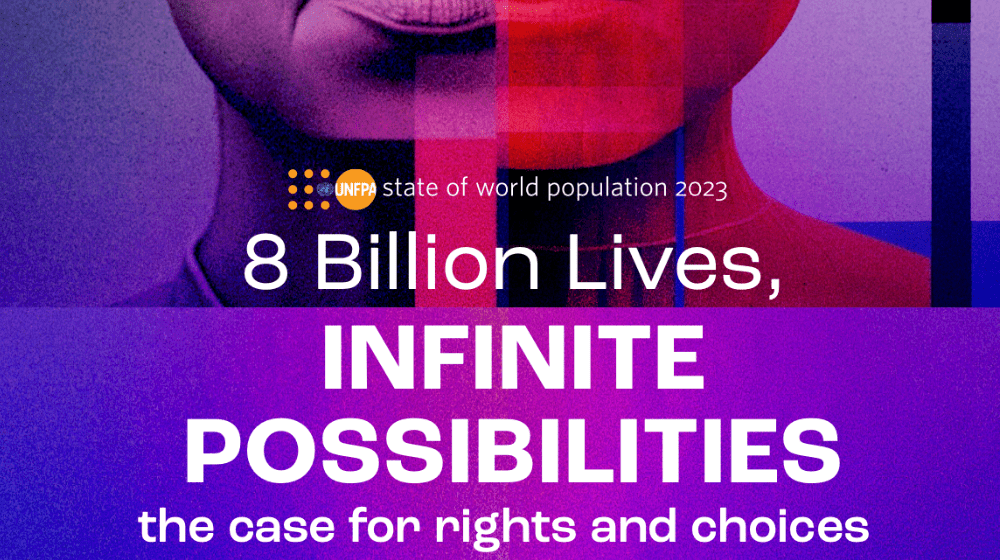Istanbul, 19 April 2023 – New data reveals population anxieties are widespread and governments are increasingly adopting policies aimed at raising, lowering or maintaining fertility rates. But efforts to influence fertility rates are very often ineffective and can erode women’s rights, according to UNFPA's State of World Population report, released today.
The landmark report “8 Billion Lives, Infinite Possibilities: the case for rights and choices” calls for a radical rethink of how population numbers are framed – urging politicians and media to abandon overblown narratives about population booms and busts. Instead of asking how fast people are reproducing, leaders should ask whether individuals, especially women, are able to freely make their own reproductive choices – a question whose answer, too often, is no.
“Women’s bodies should not be held captive to population targets,” says UNFPA Executive Director Dr. Natalia Kanem. “To build thriving and inclusive societies, regardless of population size, we must radically rethink how we talk about and plan for population change.”
A staggering 44 per cent of partnered women and girls in 68 reporting countries do not have the right to make informed decisions about their bodies when it comes to having sex, using contraception and seeking health care; and an estimated 257 million women worldwide have an unmet need for safe, reliable contraception.
History has shown that fertility policies designed to increase or lower birth rates are very often ineffective and can undermine women’s rights. Many countries have rolled out programmes to engineer larger families by offering financial incentives and rewards to women and their partners, yet they continue to see birth rates below two children per woman. And efforts to slow population growth through forced sterilization and coercive contraception have grossly violated human rights.
Family planning must not be used as a tool for achieving fertility targets; it is a tool for empowering individuals. Women should be able to choose if, when and how many children they would like to have, free from the coercion of pundits and officials.
“The alarmism that dominates public discourses on fertility rates poses real risks: It threatens to distract us from finding constructive solutions to serious but solvable problems. And it risks becoming a rationale for denying the rights and bodily autonomy of women and girls,” said Florence Bauer, Director of UNFPA’s Regional Office for Eastern Europe and Central Asia.
For more information, please contact:
- Eddie Wright in New York: ewright@unfpa.org, +1 917 831 2074
- Jens-Hagen Eschenbaecher in Istanbul: eschenbaecher@unfpa.org, +90 549 748 36 55



